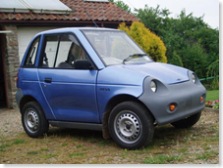Carsguide.com.au recently published a story regarding the image of cars being largely to blame for carbon emissions, with some interesting points raised within it. The article reports that passenger cars contribute less to global warming than “the nation’s sheep and cow population emit through flatulence” and that moving the entire Australian passenger car fleet to plug-in electric would cause a “massive increase in greenhouse gases”. The bottom line: keep driving your car, it’s not to blame. How true is this claim, and is it responsible journalism to make it?
Neil Dowling, the article’s author, draws the bulk of his information from government sources such as the Australian Greenhouse Office and the Sustainable Energy Development Office, and the data he uses from these sources is certainly reasonable at face value. As a percentages game, vehicles aren’t the main culprit by any means – road transport makes up about 15 per cent of Australia’s greenhouse gas emissions, compared to stationary energy generation which comprises about 35 per cent, thanks to our dependence on coal. Australia is in an unfortunate position in this respect; our electricity is so polluting that an electric car would produce more CO2 than an average sized petrol-driven car, such as a Toyota Camry.
As any green motor enthusiast would know, however, electric cars are but one part of the equation. While we can make some substantial cuts in our electricity use through various means – switching to CFLs, adjusting the thermostat, buying green power and solar panels – it’s important not to lose perspective of how much each of our activities affects emissions. A V8 car pollutes just as much on your local street as it does on a road in the United States, or in China, or in Norway. If you’re dedicated to reducing your “carbon footprint”, to borrow a rather clichéd phrase, you can’t say “oh, I use energy-saving lamps so I can afford to buy a Commodore instead of a Prius”.
Dowling also neglects to give any time to the far more feasible options of biofuels such as ethanol and biodiesel. Australia has a huge sugar cane growing capacity, and given the higher efficiency of ethanol derived from sugar cane as compared to corn (which is used almost exclusively in the United States), we’re wasting an opportunity to significantly reduce our oil consumption. Combined with methane capture from the farm flatulence mentioned earlier and various sources we can use to create biodiesel, we can reduce our fossil fuels use considerably.
In short: we have a long way to go in reducing emissions and our electricity consumption is a large part of it. For that reason, electric vehicles aren’t the best mainstream option for Australia right now, not until we move to more renewable or low-carbon sources. That doesn’t mean that we can neglect other areas in which we’re responsible for not only CO2 emissions, but others such as nitrogen oxides and particulate emissions which can have a damaging effect on the local air quality. We need to take a holistic approach rather than playing the tired old blame game if we want to effect any change at all.





 Meridian Energy, a New Zealand electricity provider to around 200,000 homes and businesses, is planning to trial the use of electric vehicles early next year. The company’s CEO, Keith Turner, believes that all-electric cars are the next step in the evolution of vehicles (after hybrids and plug-in hybrids) and feels that the required technology has reached a tipping point.
Meridian Energy, a New Zealand electricity provider to around 200,000 homes and businesses, is planning to trial the use of electric vehicles early next year. The company’s CEO, Keith Turner, believes that all-electric cars are the next step in the evolution of vehicles (after hybrids and plug-in hybrids) and feels that the required technology has reached a tipping point.